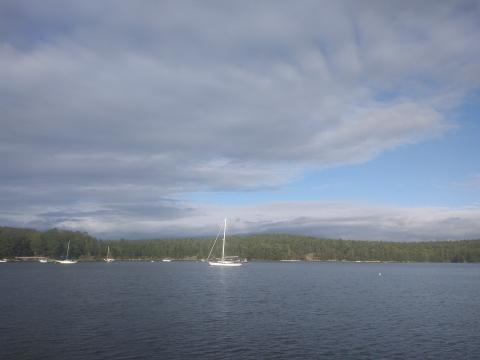Another day at Isles of Shoals and exploring Star Island
Today we weren't planning to leave Gosport Harbor at the Isles of Shoals because of forecasted four foot waves. But when we looked outside around 8:00am all the other boats were gone. And our end of the harbor was getting some wave action so we needed to move further into the harbor anyways.
We decided to see what the conditions were like out there. They were just on the good side of unreasonable and we probably could have tacked our way upwind to Rockport by late afternoon. But we looked at the dark clouds on the horizon and matching forecast for light rain, and then turned around. On the way back the heightened conditions and frustrations of not making any progress for the day led to lively "team dynamics".
We grabbed a mooring ball closer in and had lunch. Our mooring ball floated quite a ways back as our boat hung on it, so that the next mooring ball (unoccupied) was at times almost touching the stern. Later someone was daring enough to snag it and now we are all hanging out with good spacing.
We took the dinghy to Star Island where we walked the trails around the island to look at the sights as the drizzle started. We had very good ice cream and then went back to the boat to nap and read while it rained a bit longer. Now we are about to make pizza and are looking forward to a sunny day tomorrow!
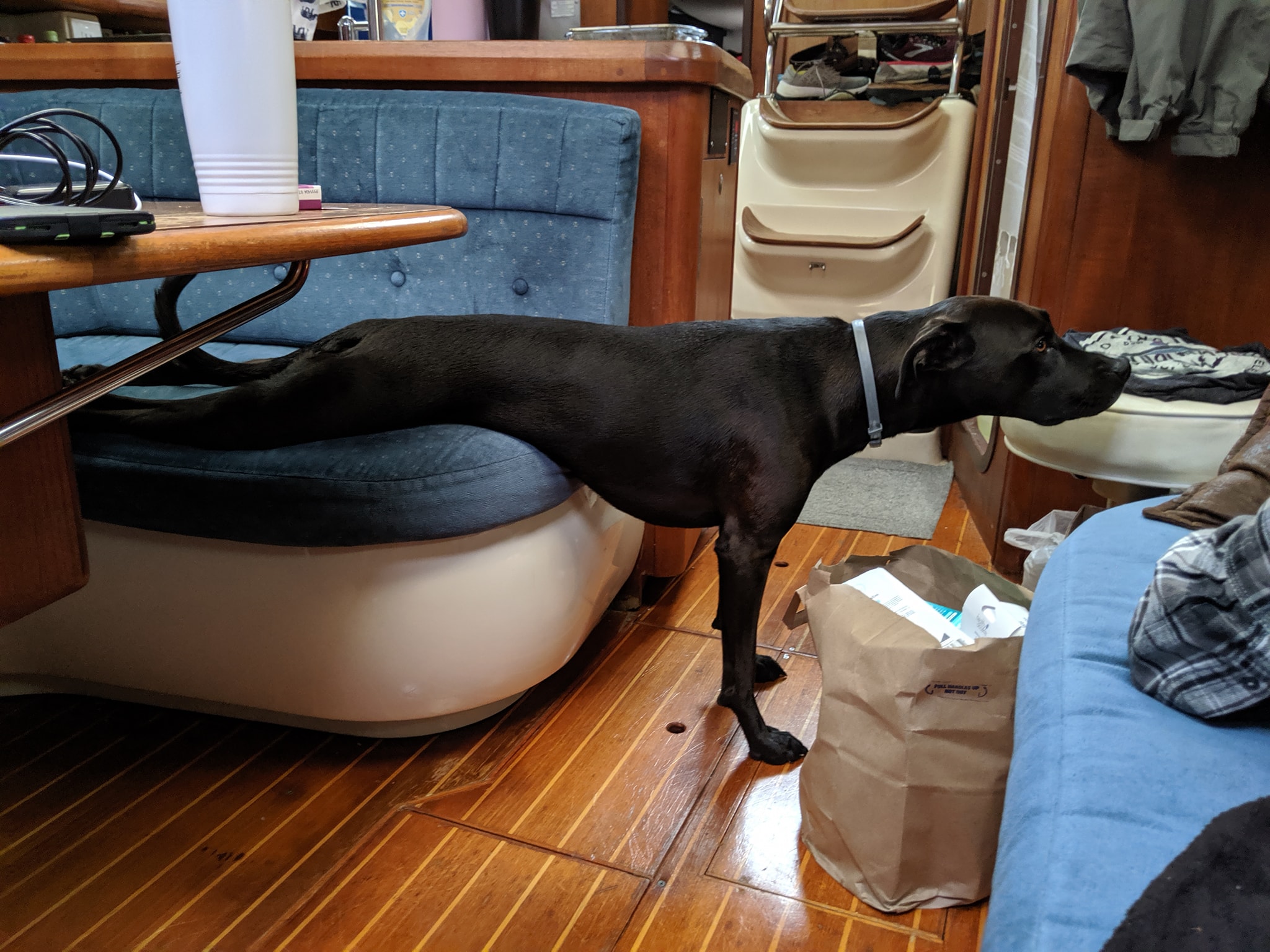
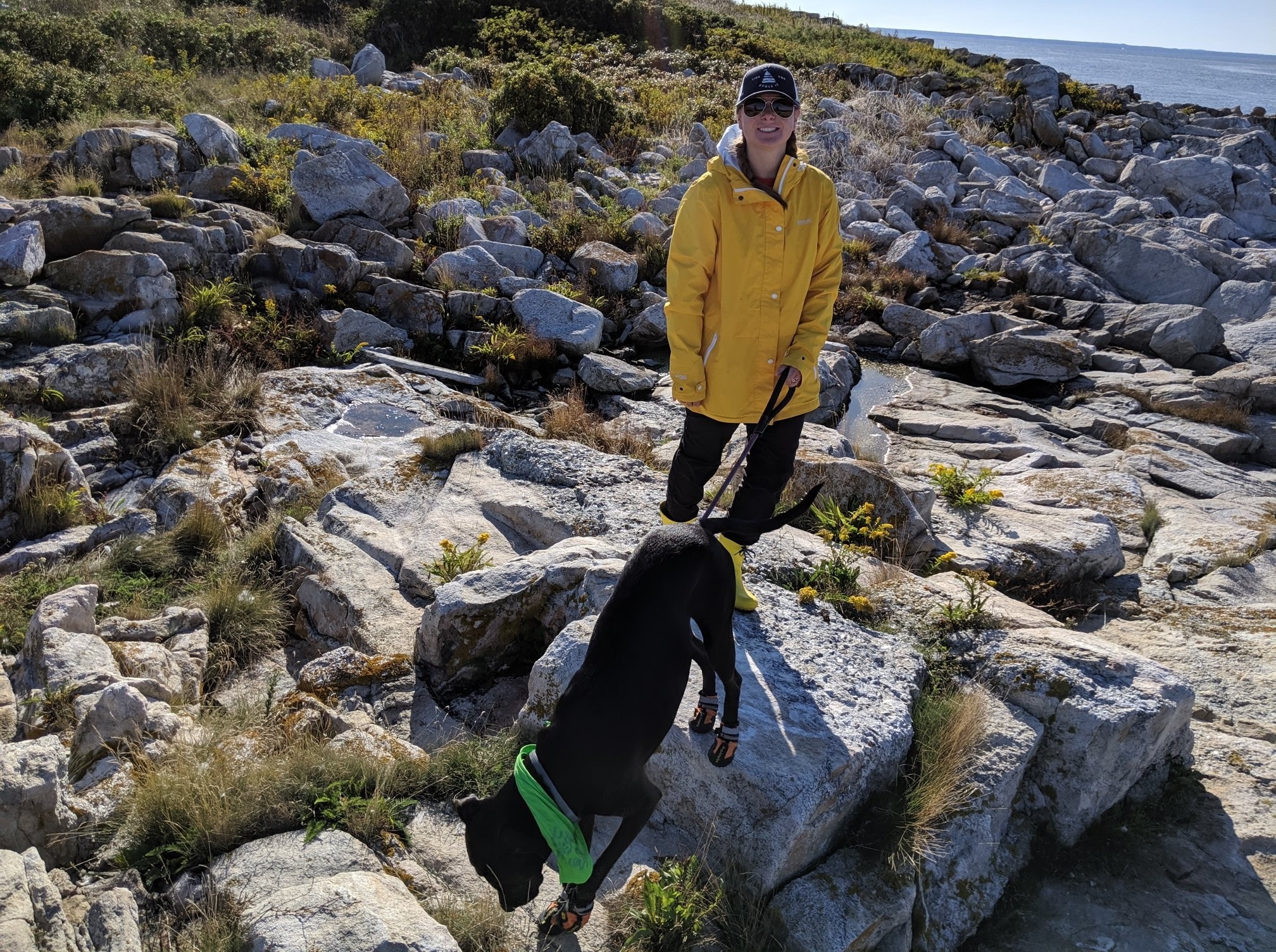
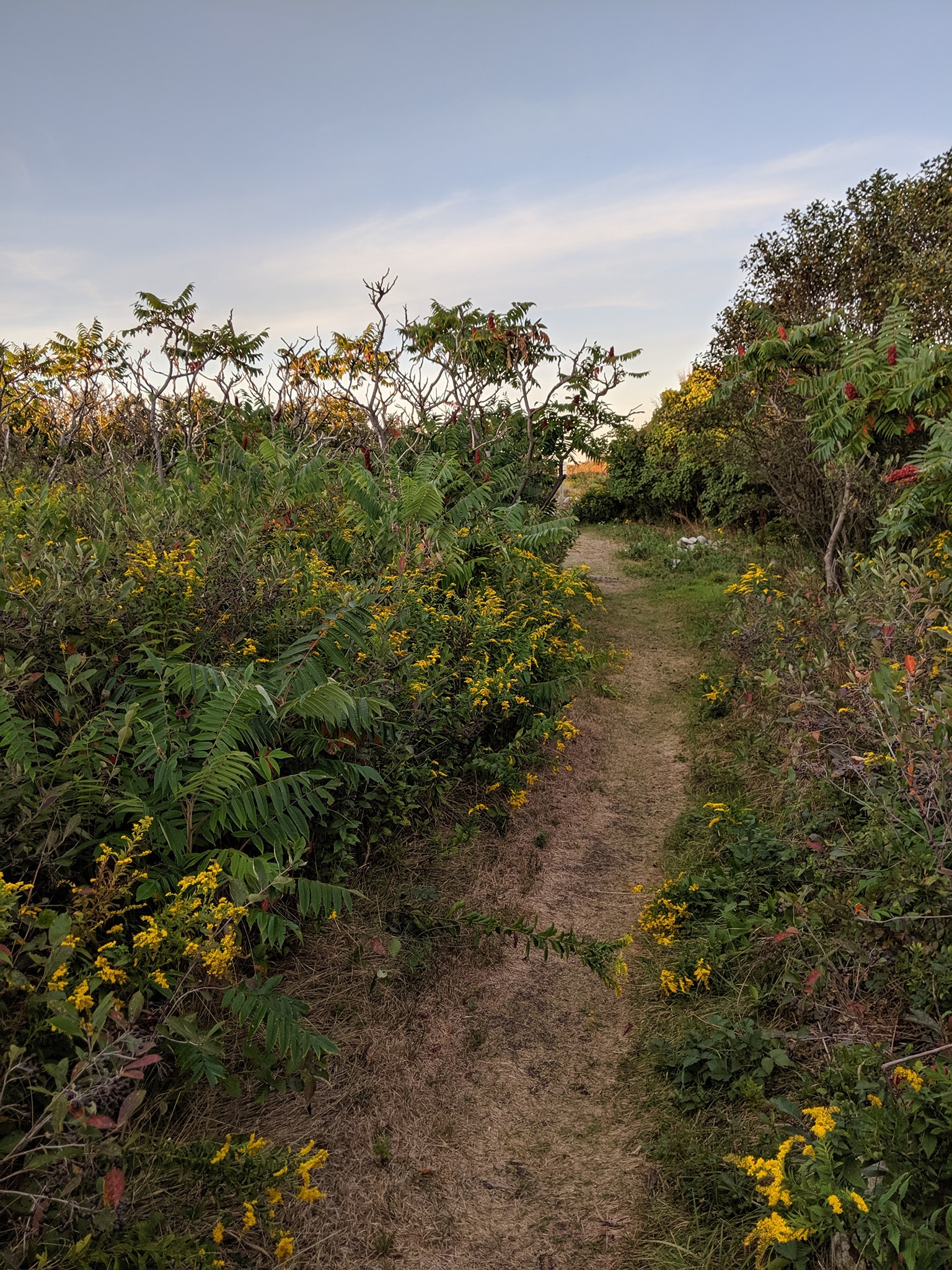
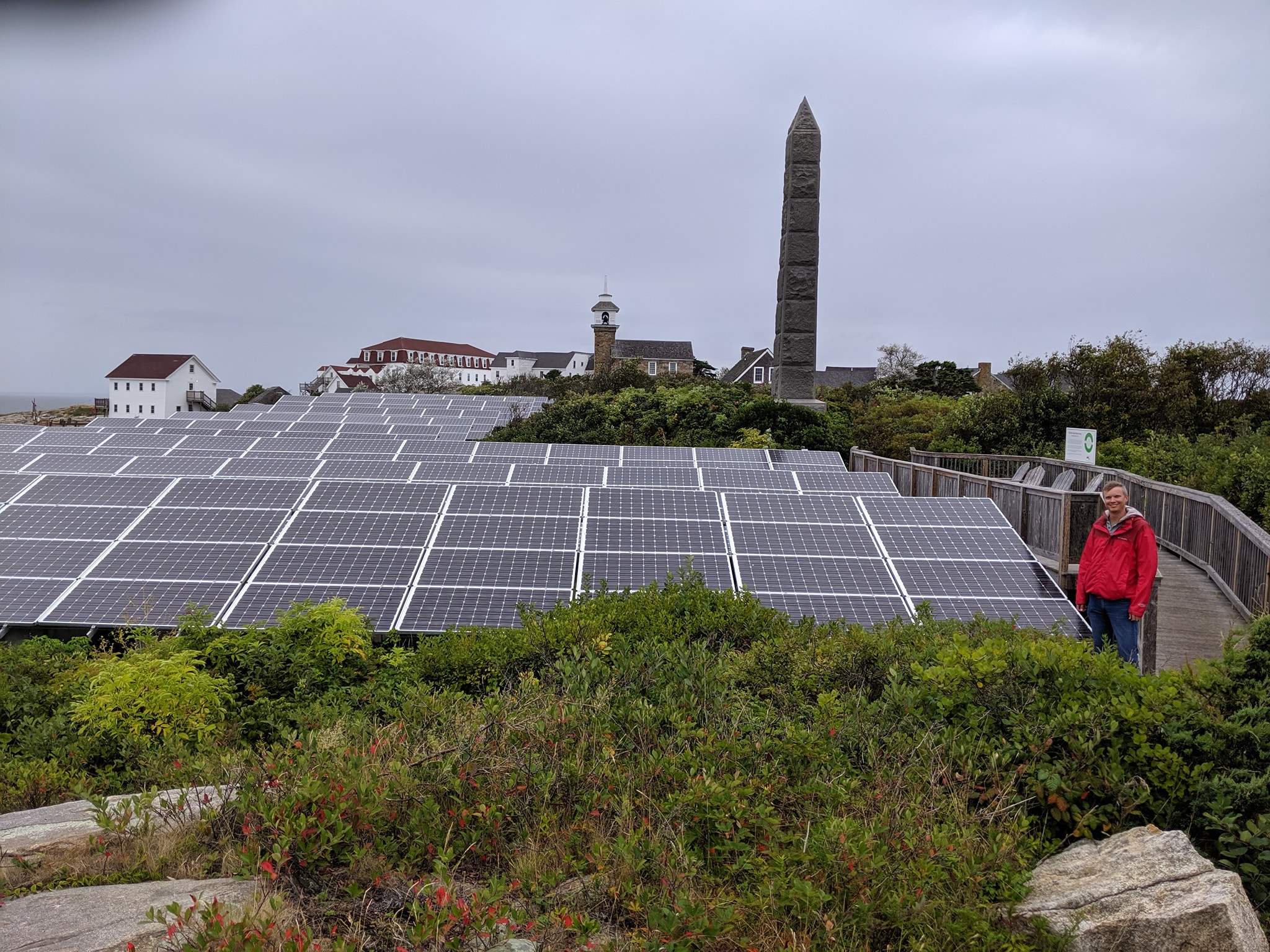
- Log in to post comments
